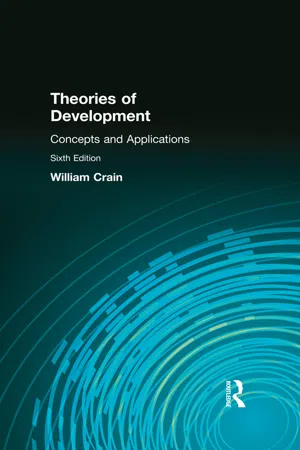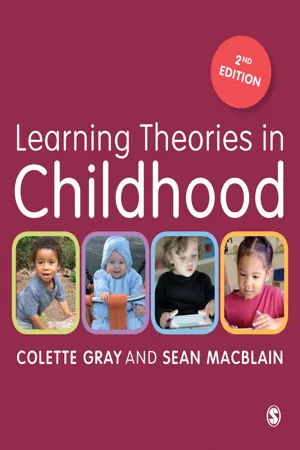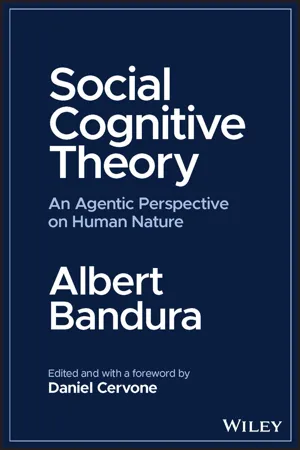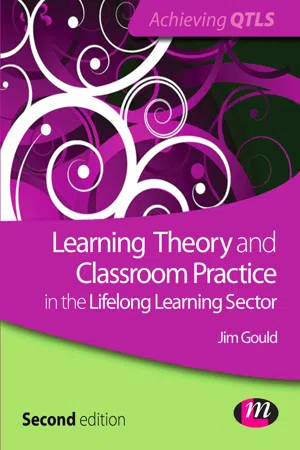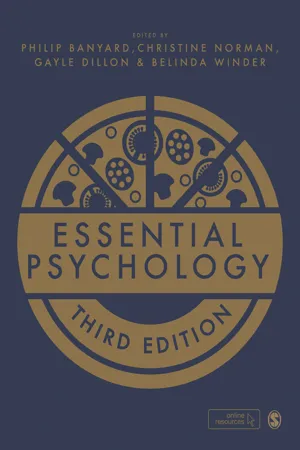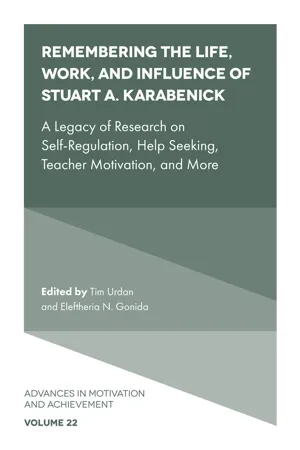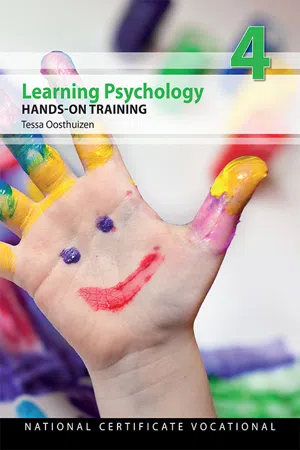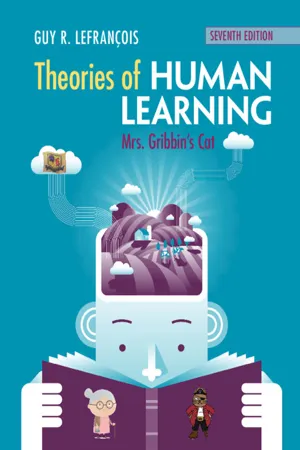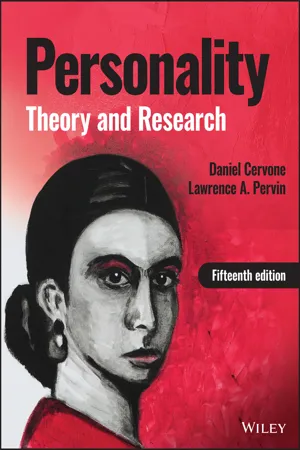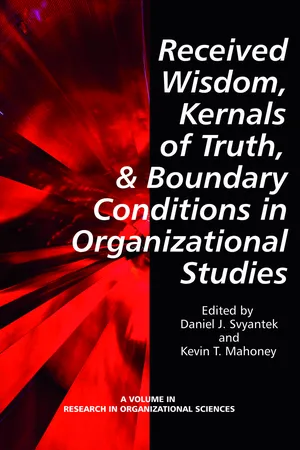Psychology
Albert Bandura
Albert Bandura is a renowned psychologist known for his work on social learning theory and self-efficacy. His research emphasized the role of observational learning and modeling in human behavior, challenging traditional behaviorist theories. Bandura's Bobo doll experiment demonstrated the impact of observational learning on aggressive behavior, contributing significantly to our understanding of how individuals acquire and modify behaviors through social interaction.
Written by Perlego with AI-assistance
Related key terms
1 of 5
11 Key excerpts on "Albert Bandura"
- No longer available |Learn more
Theories of Development
Concepts and Applications
- William Crain(Author)
- 2015(Publication Date)
- Routledge(Publisher)
CHAPTER 9Bandura’s Social Learning Theory
BIOGRAPHICAL INTRODUCTION
The pioneering learning theorists usually developed their concepts by experimenting with animals in physical settings. They watched how animals ran through mazes, solved puzzle boxes, and learned to press levers in Skinner boxes. These situations were not social; there were no other animals present. Skinnerians and others then showed how the same principles apply to human learning in social contexts. Just as rats learn to press levers to get food, people learn to interact with others to obtain social rewards.In the 1960s, however, Albert Bandura argued that our learning in social situations goes beyond anything Skinner and most learning theorists described. In social settings, Bandura said, we learn a great deal through imitation, and imitation involves cognitive processes. We acquire considerable information just by observing models, mentally coding what we see.In the 1970s Bandura refined his ideas on observational learning and demonstrated the powerful effects models have on our behavior. Beginning in the 1980s he turned more attention to the ways our efforts are influenced by our beliefs in our capacities—our self-efficacy beliefs. Bandura’s lifetime of work occupies a central place in modern psychology.Bandura was born in 1925 in the tiny town of Mundare in the province of Alberta, Canada. His parents had emigrated to Mundare from Eastern Europe as teenagers and had converted a homestead into a farm, which they struggled to maintain against storms and droughts. As a boy Bandura pitched in when he could. Although his parents had no schooling, they valued education and instilled this value in Bandura. After attending a high school with only 20 students, Bandura enrolled in the University of British Columbia, working afternoons in a woodwork plant to help pay the cost (Bandura, 2006; Evans, 1989).Bandura enrolled in his first psychology class almost by chance. He was commuting to the college with a group of engineering and premed students who took early morning classes, and Bandura had a gap in his schedule. So he signed up for the psychology course and immediately became fascinated by the topic. He majored in it; and after earning his bachelor’s degree, he entered the clinical psychology graduate program at the University of Iowa. While he was there he became impressed by the work of Robert Sears and other pioneers of social learning theory, and Bandura began thinking seriously about the role of models in shaping our lives (Bandura, 2006; Evans, 1989; Zimmerman & Schunk, 2003). - eBook - PDF
- Colette Gray, Sean MacBlain(Authors)
- 2015(Publication Date)
- SAGE Publications(Publisher)
Given that Ben is frequently in the company of articulate and successful adults, it is certain that he will learn many positive aspects of behaving and inter- acting with others through observing their behaviours, as well as the responses they receive, which invariably will be characterized by the attentive and interested responses of others. It is worth noting that Bandura also proposed a type of sym- bolic modelling where children engage in imitation and identification of individuals who are not real but fictional, such as the type of characters found in fairy tales and children’s stories. The ever-increasing number of visual stories and cartoons found in children’s television, the cinema and computer games can be included within this type of symbolic modelling. A further key element of Bandura’s theory, which is directly relevant to practition- ers working with young children, is that of self-efficacy (Bandura, 1997). Having a better knowledge and understanding of self-efficacy is very important for profes- sionals working with young children in educational and care settings. Bandura saw self-efficacy as a child’s belief in their abilities to do well and to succeed in certain situations, and as their capacity to exercise control over their own actions in order to gain success. He proposed that self-efficacy is directly related to how children think and act, as well as to their emotional state. In effect, Bandura has influenced the way in which we try to understand the goals that individuals – be they children, parents or professionals – aim to achieve. Children with poor self-efficacy, for example, have a tendency to avoid tasks that present them with a challenge, preferring instead to focus on the negative and frame their thinking within constructs whereby they come to convince themselves that they cannot achieve. Children with poor self-efficacy typically present themselves in social situations as having low self-confidence. - eBook - PDF
Social Cognitive Theory
An Agentic Perspective on Human Nature
- Albert Bandura, Daniel Cervone(Authors)
- 2023(Publication Date)
- Wiley(Publisher)
53 Social Cognitive Theory: An Agentic Perspective on Human Nature, First Edition. Albert Bandura. © 2023 John Wiley & Sons, Inc. Published 2023 by John Wiley & Sons, Inc. Social Cognitive Theory subscribes to a model of human agency that is interactive (Bandura, 1986). Persons are not autonomous agents who exert an inner “will- power” that stands apart from the social world in which they develop and live. Nor are they merely collections of reflexive mechanisms that animate environ- mental influences. Rather, people make causal contributions to their own motiva- tion and action as they interact with their environments and reflect on their own behaviors, as was discussed in Chapter 1. Within the social cognitive model of triadic reciprocal causation, three classes of influences—actions; cognitive, affec- tive and other personal factors; and environmental events—are mutually interact- ing determinants. Within this causal interplay, a diverse range of the personal factors contributes to human agency, as the chapters of this book explain. Yet, among them, one stands out. No psychological mechanism is more central or pervasive than peo- ple’s beliefs about their capabilities to exercise control over events that affect their lives. The present chapter analyzes these beliefs in self-efficacy. Exercise of Agency Through Self-Belief of Efficacy Self-efficacy beliefs are an aspect of thinking; specifically, they are a class of judg- ments. When people contemplate challenging activities, they commonly judge the effectiveness with which they can take actions to meet the challenges and attain a given level of success. Perceptions of self-efficacy are defined as people’s judg- ments of their capabilities to execute courses of action that are required to attain designated types of performances (Bandura, 1986). Self-efficacy beliefs are judg- ments of what one can do in a current or prospective situation, not statements of intentions of what one will do (Bandura, 2006a–c). - eBook - ePub
- Donald Pennington(Author)
- 2018(Publication Date)
- Routledge(Publisher)
A huge amount of empirical research has been conducted within the umbrella of Bandura’s theory – for example, between 1990 and 1996 around 1400 journal articles on self-efficacy alone were published. This large empirical base for Bandura’s theory means that confidence is gained in its effectiveness in applied areas of psychology.Including both cognitive and social aspects in a theory of learning has meant that the problems encountered by radical behaviourists could be solved. The approach also acknowledges what makes intuitive sense as well – that how people think and what they believe they can do affects behaviour and how well a behaviour is performed. Additionally the approach demonstrates the important influences that other people have on our lives, how we think and what we do.On a more critical note, Bandura’s theory does neglect to articulate and detail the role of biology and inheritance in areas such as aggression. Empirically, much of the early research investigating imitation of aggression in laboratories, with adults behaving aggressively to a Bobo doll does seem highly artificial. However, more recent research has placed greater emphasis on realism or the ecological validity (see Chapter 1 ) of empirical studies.Overall, Bandura has made an important and substantial contribution to understanding human behaviour. The theory and associated research reflect a careful scientific approach to the study of personality.7.3 ROTTER’S SOCIAL LEARNING THEORYRotter, like Bandura, is another social learning theorist who thought radical behaviourism too narrow and inadequate to explain human behaviour. Bandura, as we have seen, focused on observational learning and self-efficacy to predict behaviour. Rotter also focuses on cognitive factors, but those of perceptions, expectancies and values.Rotter was influenced by the ideas of Alfred Adler; in particular the idea that human behaviour is very much goal-directed, i.e. consciously aimed at achieving specific objectives or outcomes. Rotter was also influenced by Lewin’s (1938) field theory, which sees human behaviour resulting from multiple causes and a result of the interrelatedness of many factors. Generally speaking, Rotter’s social learning theory deals with inner conscious mental processes to a greater extent than Bandura. - Jim Gould(Author)
- 2012(Publication Date)
- Learning Matters(Publisher)
You will see Bandura’s work referred to both as ‘social learning’ and ‘social cognitive learning’. The boundary between these two categories is not that clear-cut. Bandura tried to present a balanced view showing that both behaviourist and cognitive theories impact on our learning but the active nature of the learning that takes place along with the role played by internal mental and decision-making processes within his approach, suggest that ‘social cognitive learning’ is probably the most apt descriptor. Certainly it is an active form of learning. Regardless of title, however, the main characteristics of Bandura’s theory can be summarised as follows.- People learn by observing others but as this is not through their own direct experiences, the process is known as vicarious learning.
- This learning can modify behaviour, but people do not always choose to apply what they have learned depending upon the consequences, actual or perceived, of that behaviour.
- People are more likely to adopt the behaviours modelled by someone they hold in high esteem or can identify with.
- The ability to learn is directly affected by the degree of self-efficacy that a person possesses.
Bandura and life
REFLECTIVE TASK
While we may want to use it in a deliberate manner in a learning environment, social learning has a significant but less overt effect on our daily lives. What examples of this can you identify?The development of phobias may well be related to social learning. If, for instance, a parent reacts badly to a spider, this could provide a model for a child to follow. As well as phobias, many of our attitudes are developed in childhood and these are heavily influenced by the behaviours modelled by parents and other family members. Attitudes such as those towards race, religion, gender, authority, money – the list is fairly endless – will be modelled in complementary live, verbal and symbolic modes on a regular basis with the possibility of direct as well as vicarious consequences for either adopting or not adopting these behaviours. Similarly, friends can also be powerful models as exemplified by the power exerted through peer pressure. In order to belong to a particular group, we exhibit the behaviours which are common within the group and which are approved of by the group as a whole. A similar argument can be applied to the clothes we wear, the shops we frequent or even the type of car that we drive. Advertising relies heavily on the principles underpinning social learning theory in order to influence our behaviours and often targets specific demographic groups for this purpose. Not all social learning leads to desirable behaviours, however, as was seen in the Bobo doll experiments. We are often aware of the inappropriateness of our actions as role models and if not are subject to warnings of ‘not in front of the children’ when we overstep the mark. The media provides a significant source of behaviour modelling and a need to safeguard children from inappropriate role models led to the introduction of the television watershed which deems that material regarded as unsuitable for young children should not be broadcast before 21:00 or after 05:30 largely because of modelling relating to sex, violence and the use of strong language. Inappropriate modelling encompasses health and safety risks as well as behaviours that might be considered as morally unacceptable. Game shows and sports programmes which include dangerous or high risk activities often conclude with the advice not to ‘try this at home’.- No longer available |Learn more
- Philip Banyard, Christine Norman, Gayle Dillon, Belinda Winder, Philip Banyard, Christine Norman, Gayle Dillon, Belinda Winder(Authors)
- 2019(Publication Date)
- SAGE Publications Ltd(Publisher)
7 .3.1 Bandura and social learning theory While the introverted among you might disagree, we humans are in fact social beings. This poses a problem for the behaviourists, who suggest that we learn because of direct experience. That is, we can only learn if we actively partake in a particular behaviour. However, humans (and other animals) are capable of learning indirectly. This means we can observe and then imitate the behaviours of others. Because of this limitation, Albert CRITICAL PSYCHOLOGY The behaviourist (and to an extent the cognitive models as well) have a machine met- aphor for a person. The model does not require people to have choices or to make moral decisions – we just respond to our environment. So, we don’t have to worry about personal development or self-esteem, we just need to make sure that the right rewards are available at the right time. In his book Beyond Freedom and Dignity (1971), B.F. Skinner argued that we need to develop a technology of behavioural control to improve conditions in our societies. Read the quotes above from Watson (1924) and Skinner (1973/1971). Watson sees us as objects to control, but who should be the controllers? Skinner is clearly onto something in his quote, but does the environment explain everything we need to know? And who is to say what is ‘objectionable behaviour’ and what is acceptable? 160 COGNITIVE PSYCHOLOGY Bandura proposed an extension to the behaviourist learning theory by incorporating this social element. In the original ‘social learning’ approach, he suggested that the punishment and reinforcement of behaviour can be learned indirectly through observation. If an individ- ual observes someone being rewarded for a particular action, then they are more likely to imitate this behaviour. This is called ‘vicarious rein- forcement’. Conversely, if they witness someone being punished for a particular action, imitation will be less likely. - eBook - ePub
Remembering the Life, Work, and Influence of Stuart A. Karabenick
A Legacy of Research on Self-Regulation, Help Seeking, Teacher Motivation, and More
- Tim Urdan, Eleftheria N. Gonida, Tim Urdan, Eleftheria N. Gonida(Authors)
- 2023(Publication Date)
- Emerald Publishing Limited(Publisher)
Schunk, 2012 ). Bandura proposed that individuals can control their actions, thoughts, and behavior through self-regulation by setting goals, sustaining motivation, and expecting outcomes based on determined behavior.Central to the social cognitive theory is the critical role of self-efficacy. Self-efficacy refers to individuals' beliefs that they can learn or perform designated tasks (Bandura, 1997 ). Effective, self-efficacious learners master the necessary skills required for specific tasks. Self-efficacy is associated with high academic performance, self-regulation, task persistence, and effort regulation. Self-efficacy beliefs are learned through vicarious experiences, social persuasion, mastery performance, and physiological reactions to determined tasks (Morris et al., 2017 ).Concerning self-regulation, Bandura (2006) argued that there are four core properties of human agency (see Fig. 1 ). The first core property of human agency is intentionality, which indicates that individuals proactively work toward their desired goals and commit to an interdependent action plan. An interdependent action plan involves individuals forming intentions and plans and using strategies to pursue and implement goals. For instance, to complete a crucial assignment, learners will accommodate their schedule, adjust their environment, and ensure that the tasks are successfully completed (Bandura, 2006 ). Second, forethought involves goal setting through plan visualization and projection of outcomes affecting current efforts and purposeful behavior. Individuals develop forethoughts to anticipate outcomes and guide their efforts toward reaching those outcomes. With purpose and proactivity, individuals create a cognitive representation of those outcomes as present rather than future events (Bandura, 2001 ). Third, self-reactiveness involves self-regulatory processes for monitoring one's advancement toward their desired outcomes. Self-reactiveness requires the capacity to engage in self-motivation to direct the necessary course of actions intended to guide performance and sustain personal standards. Fourth, self-reflectiveness - Available until 8 Feb |Learn more
- T Oosthuizen(Author)
- 2014(Publication Date)
- Future Managers(Publisher)
1.2 Implications You should agree that Bandura’s theory of social learning has some impact on the learning of adults and children. It is thus important that you take note of the following points so that you can maximise the learning in your class: • People learn by observing others so, you need to make sure that the best models are available to learn from. When dealing with young children, you are the main model and can have a major influence on their learning and behaviour. However they also learn from their peers. You can also introduce them to other good models so that you can breakdown stereotypes, e.g. all fire fighters are men. • Learning can take place without a change in behaviour. People may learn by observing but they may not put it into practice: so you may not be able to see all the learning that has taken place. • In order for someone to learn, you need to get their attention and interest first before trying to teach a concept or skill. • In order for rewards or punishment to work, the person must understand the connection and be motivated enough to change their behaviour. You may need to talk about the consequences of bad behaviour or discuss possible rewards for good behaviour. • People will change their behaviour more readily if they believe that they are able to accomplish the learning. You need to have realistic expectations and encourage them in order to build their confidence. • Many behaviours can be learned through modeling –the following are some examples: reading (children learn to value reading if they see their parents/ role models reading); aggression (by watching family members being aggressive towards others); moral behaviour (observing other people being honest). Module 1 6 1.3 Erik Erikson Erikson’s research differed from Bandura as he focused more on the emotional, as well as, social aspects and the impact they have on learning. He saw the life of a person as divided into eight stages of development. - eBook - PDF
Theories of Human Learning
Mrs Gribbin's Cat
- Guy R. Lefrançois(Author)
- 2019(Publication Date)
- Cambridge University Press(Publisher)
The eliciting effect, explains Bandura, “is the social facilitation function . . . . The whole fashion and taste industry relies on that modeling functioning” (Evans, 1989, p. 5). COGNITIVE CONTROL IN BANDURA ’ S SOCIAL COGNITIVE THEORY ...................................................................................... As we saw, although Bandura’s early formulation of his theory of observational learning (or imitation) was based squarely on a model of operant conditioning, his later writings have taken a decidedly cognitive twist (Bandura, 1986, 2007). Some of our behaviors, explains Bandura (1977), are instigated by environmental events and bodily conditions such as those relating to hunger, thirst, and pain. But, in his words, “A great deal of human behavior, however, is initiated and sustained over long periods in the absence of compelling immediate external stimulation. In these instances, the inducements to action are rooted in cognitive activities” (Bandura, 1977, p. 161). In Chapter 9, we saw the cognitive side of Bandura’s theorizing in a discussion of the aspect of his social cognitive theory that deals with what is termed self-referent thought. Self-referent thought is thought that involves our own mental processes. Recall that a fundamentally important aspect of self-referent thought concerns the individual’s personal assessments of competency and effectiveness. What Juan thinks of himself (his sense of self-efficacy) is inextricably linked with decisions he makes about what he will do as well as with the amount of effort and time he is willing to devote to different activities. If he firmly believed himself to be stupid and incapable of understanding the concepts in this book, he probably would not read it. Thus, cognitions drive actions. Even in operant learning, claims Bandura, what is most important is the ability to symbolize and to anticipate the consequences of a person’s own behavior (as well as the behavior of others). - eBook - PDF
Personality
Theory and Research
- Daniel Cervone, Lawrence A. Pervin(Authors)
- 2022(Publication Date)
- Wiley(Publisher)
Sources: Anderson and Bushman (2001), Associated Press (November 14, 2002), Bushman and Anderson (2002). peopleimages.com / Adobe Stock 334 SOCIAL-COGNITIVE THEORY: BANDURA AND MISCHEL The general term for personality processes that involve the self-directed motivation of behav- ior is self-regulation (Gailliot, Mead, & Baumeister, 2008). The term is meant to imply that people have the capacity to motivate themselves: to set personal goals, to plan strategies, and to evaluate and modify their ongoing behavior. Self-regulation involves not only getting started in goal attainment but also avoiding environmental distractions and emotional impulses that might interfere with one’s progress. The process of self-regulation inherently involves all of the social-cognitive personality struc- tures that we have reviewed thus far. People regulate their behavior by setting personal goals and by evaluating their ongoing behavior according to evaluative standards for performance. Expectancies also are critical; in particular, high expectations of self-efficacy may be necessary if people are to persevere in their goals despite running into setbacks along the way. In its study of self-regulation, social-cognitive theory emphasizes the human capacity for foresight—our ability to anticipate outcomes and make plans accordingly (Bandura, 1990). Bandura contends that “most human motivation is cognitively generated” (1992, p. 18). Peo- ple anticipate future challenges and devise plans to meet them. This makes people “proactive” rather than merely “reactive.” The point may seem obvious once stated. But consider the type of research paradigm associated with so many other theories: an experimenter (a) presents a stimulus and (b) sees how people react to it. Social-cognitive theory highlights a limitation to this paradigm. People do not merely respond to stimuli. They plan ahead, select the places they go and the things they do, and thus determine the “stimuli” they will encounter. - Daniel J. Svyantek, Kevin T. Mahoney(Authors)
- 2013(Publication Date)
- Information Age Publishing(Publisher)
We illustrate this distinction in Figure 4.1, which is similar to Figure 1 in Bandura’s (1977) seminal article. The idea that a belief in a contingency prior to behavior can be impor-tant in some contexts seems reasonable. For example, Bandura, Reese, and Adams (1982) demonstrated the power of self-efficacy beliefs in a group of ophidiophobics (i.e., those with an irrational fear of snakes) who appeared to believe they were not capable of interacting with, much less approaching, snakes. According to Bandura, these individuals clearly had the capacity to approach the snake (i.e., they were not physically limited in any way), they just did not believe in their capacity. By modeling the behavior (e.g., demonstrating that others could approach and interact with the snakes), some of these individuals eventually learned that they too could approach the snakes and actually did. Management Scholars 79 Person Behavior Outcome (e.g., performance) self-efficacy (belief in capacity) expectancy (assessment of contingency) In addition to a rationale, another important quality for a potential motivator is ease of manipulation. Toward that end, much research has examined the antecedents of self-efficacy (Gist & Mitchell, 1992). That research finds that past performances, often called mastery experience (Bandura, 1997), are the most powerful cause of self-efficacy. Modeling (i.e., seeing others perform the behavior), persuasion (i.e., receiving mes-sages that one can do the behavior), and physiological arousal cues (e.g., excitement) have all been shown to affect self-efficacy, though in decreas-ing order of impact (Bandura, 1997). Finally, of course, it is important to show that higher self-efficacy beliefs lead to higher performance. The most common evidence gathered to assess this last causal link is based on passive observational designs, often called correlational (Vancouver & Warren, 2012).
Index pages curate the most relevant extracts from our library of academic textbooks. They’ve been created using an in-house natural language model (NLM), each adding context and meaning to key research topics.
